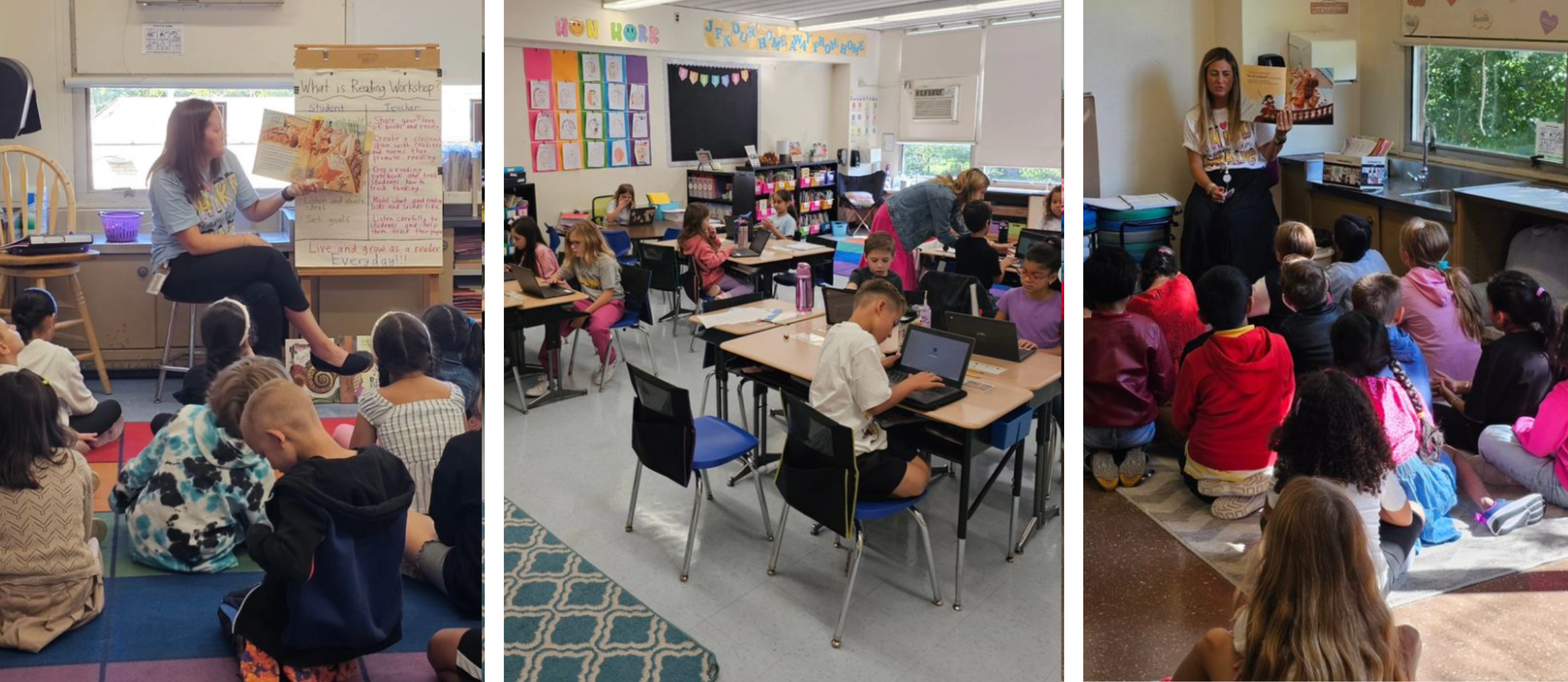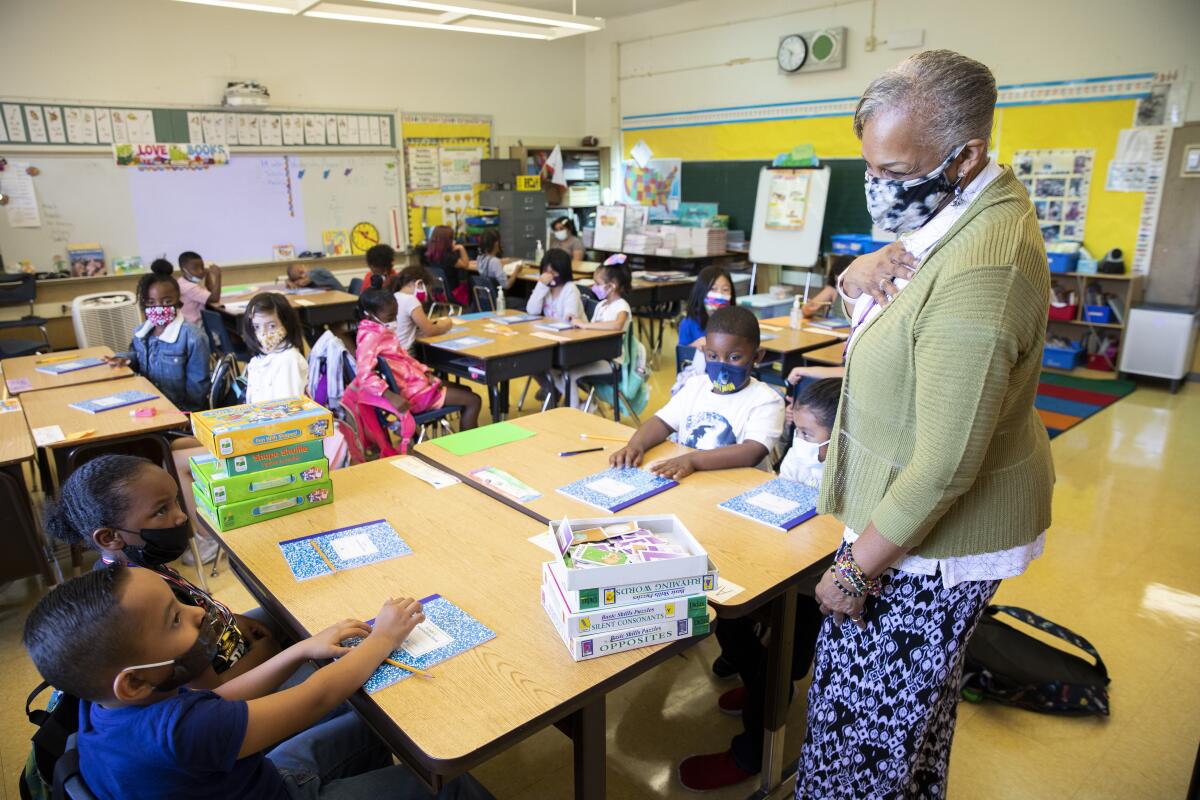The Importance of Neighborhood Support to Save Temecula Schools Today
The Importance of Neighborhood Support to Save Temecula Schools Today
Blog Article
Understanding the Significance of Institutions in Child Advancement and Community Growth
Schools function as essential establishments for youngster growth and community growth, providing atmospheres where academic achievements are complemented by the cultivation of social abilities and exposure to varied perspectives. These academic setups not just advertise crucial thinking and efficient interaction however likewise foster empathy with collective projects. Colleges' involvement with neighborhood areas through service-learning initiatives reinforces the bond in between families and instructional institutions. This symbiotic partnership underscores the significance of colleges in nurturing active citizenship and long-lasting knowing routines. What are the details mechanisms by which these institutions attain such extensive impacts?
Academic Accomplishment
Academic success acts as a cornerstone of youngster growth, providing the foundation whereupon future knowing and success are developed. Schools play a pivotal duty in cultivating this academic development, offering structured environments where kids can get vital knowledge and cognitive abilities. Standard educational program make certain that students gain efficiency in core subjects such as mathematics, scientific research, and language arts, which are vital for both college and professional opportunities.
Along with imparting basic academic abilities, institutions also grow important thinking, analytic abilities, and intellectual curiosity. These cognitive proficiencies are important for browsing intricate real-world scenarios and adjusting to the ever-evolving needs of the modern-day work environment. Teachers, as facilitators of discovering, utilize varied pedagogical approaches to provide to diverse knowing styles, thus making best use of specific pupil possibility.
Moreover, scholastic success is closely linked to self-confidence and motivation. Kids that experience scholastic accomplishments are more likely to create a positive self-concept and a long-lasting enthusiasm for knowing. Colleges also provide different resources, such as collections and modern technology, which further enhance the educational experience and prepare pupils for a technologically sophisticated culture.
Social Skill Growth
Beyond scholastic success, the function of institutions in social ability growth is essential. Schools serve as a primary venue for children to learn and exercise necessary social skills such as communication, conflict, and cooperation resolution. In the organized atmosphere of a class, trainees interact with peers, teachers, and various other college team, supplying various chances to establish these critical capacities.
Reliable social ability development in institutions is facilitated through group tasks, collective tasks, and extracurricular programs. These interactions aid pupils comprehend social norms, develop empathy, and cultivate a sense of neighborhood. Group assignments instruct students how to function together in the direction of a common goal, pay attention to different viewpoints, and browse disagreements constructively.

The cultivation of social abilities during college years lays a foundation for future individual and expert relationships. Save Temecula Schools. As students mature, the capacity to efficiently communicate and work together becomes increasingly essential, highlighting the school's important function in holistic why not look here child advancement
Exposure to Diversity
Direct exposure to diversity in schools is fundamental to cultivating a comprehensive frame of mind and expanding trainees' perspectives. Schools work as a microcosm of the more comprehensive culture, and encountering varied societies, languages, and socioeconomic histories within this setting gears up pupils with important skills for browsing a progressively globalized globe. This exposure urges empathy, decreases prejudices, and promotes shared respect among peers.
Diverse classrooms additionally boost social and cognitive development. Research study shows that pupils who interact with peers from varied histories show much better problem-solving skills and imagination. They discover to value different viewpoints, which enhances class conversations and promotes an extra dynamic knowing experience. This understanding of variety prepares students for future offices that value modern skills.

Neighborhood Engagement
The benefits of varied class prolong beyond the institution wall surfaces, fostering a strong feeling of neighborhood engagement amongst pupils. By communicating with peers from various social, socioeconomic, and ethnic backgrounds, students acquire a more comprehensive viewpoint and an appreciation for diversity. This exposure urges them to become active people that are ready to add favorably to their neighborhoods.
Institutions that stress neighborhood interaction typically include service-learning tasks, which enable students to address real-world troubles while using academic skills. These projects not just boost trainees' understanding of their coursework yet additionally instill a sense of responsibility and empathy. Additionally, partnerships in between published here schools and regional companies offer students with opportunities to join neighborhood occasions, better strengthening their role as aggressive community participants.
Additionally, adult and neighborhood participation in schools enhances the bond between educational organizations and the neighborhoods they offer. Through these initiatives, colleges play a critical duty in nurturing neighborhood involvement and fostering societal development.
Lifelong Knowing Behaviors
Establishing long-lasting understanding routines is crucial for a youngster's continuous development and flexibility in an ever-changing world. Colleges play a pivotal role in instilling these practices by developing an environment that promotes interest, vital reasoning, and a love for understanding. Via extracurricular activities and diverse educational programs, educators encourage trainees to discover different topics, evaluate information seriously, and apply their finding out to real-world situations.

Furthermore, colleges supply an organized environment where kids can develop self-control and time management skills, both of which are important for continuous knowing. By emphasizing the relevance of establishing objectives, assessing progression, and adjusting approaches, universities prepare trainees to browse the complexities of grown-up life, ensuring they stay long-lasting students and contributors to society.
Verdict
In final thought, colleges are essential in promoting youngster advancement and community development by providing settings for scholastic achievement, social ability advancement, and exposure to diversity. Via collective projects and communications, schools boost vital reasoning, compassion, and communication abilities. Community involvement initiatives better strengthen the bond between local communities and instructional organizations. Inevitably, institutions cultivate lifelong understanding practices, outfitting individuals with the needed understanding and skills to contribute favorably to culture.
In the structured atmosphere of a class, students connect with peers, instructors, and other institution staff, providing countless opportunities to establish these important abilities.
In essence, exposure to variety within institutions not just enriches private students but also enhances the social fabric of the community next page as a whole.
The benefits of varied classrooms prolong past the college walls, cultivating a solid sense of community interaction among students.Schools that highlight neighborhood involvement typically incorporate service-learning projects, which permit trainees to attend to real-world problems while applying academic abilities. Collaborations between colleges and neighborhood organizations supply pupils with opportunities to participate in community events, additionally solidifying their role as proactive community members.
Report this page